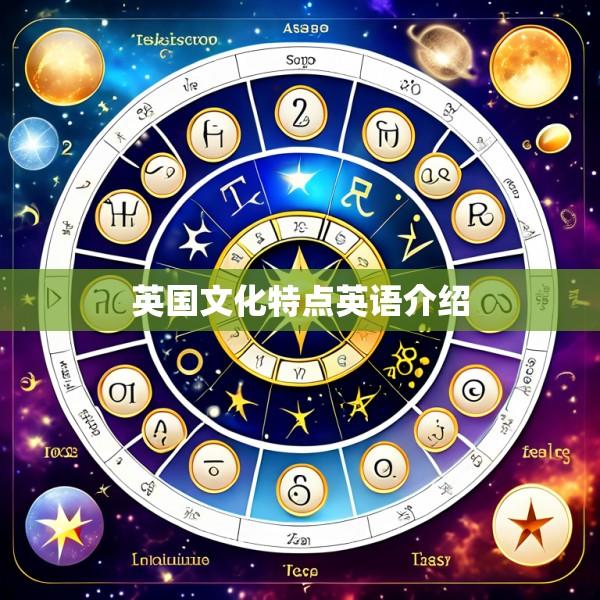British Culture: A Blend of Tradition and Modernity
British culture is a rich tapestry woven from deeprooted traditions, regional diversity, and global influences. It is characterized by a strong sense of heritage, understated social manners, and a unique fusion of oldworld charm and contemporary dynamism. Below are its defining features:
1. Strong Emphasis on Tradition and Heritage

Britain takes immense pride in its history, which is preserved in iconic landmarks (e.g., Big Ben, the Tower of London, Stonehenge) and institutions like the monarchy. The Royal Family remains a symbol of national identity, with events such as royal weddings and jubilees uniting the country. Traditional customs—such as afternoon tea, Morris dancing, and Guy Fawkes Night—are still widely practiced, reflecting a collective nostalgia for the past. Even in modern cities, historical architecture and museums (e.g., the British Museum, Westminster Abbey) serve as constant reminders of Britain’s cultural legacy.
2. Reserved Social Manners and Politeness
Britons are known for their understated demeanor and strict adherence to etiquette. Phrases like "please," "thank you," and "sorry" are integral to daily interactions, even in casual settings. They value personal space and avoid unnecessary familiarity with strangers—a trait rooted in a desire to respect individual privacy. For instance, unsolicited offers of help or overly direct questions (e.g., about salary or age) are considered impolite. This politeness extends to public behavior, where queuing ("waiting in line") is almost a national obsession, symbolizing order and fairness.
3. Regional Diversity and Local Identity
Britain comprises four nations—England, Scotland, Wales, and Northern Ireland—each with its own distinct culture, dialects, and traditions. Scots celebrate Hogmanay (New Year’s Eve) with street parties, while the Welsh cherish Eisteddfod (a festival of literature and music). Regional accents (e.g., Cockney in London, Geordie in Newcastle) and local dishes (e.g., haggis in Scotland, Welsh rarebit) further highlight this diversity. Many Britons strongly identify with their county or hometown, maintaining ties to their roots even when moving elsewhere.
4. The Unique "Afternoon Tea" Ritual
Afternoon tea is a quintessentially British tradition that embodies elegance and leisure. Originating in the Victorian era, it typically includes a pot of black tea (e.g., Earl Grey, Assam), served with delicate sandwiches (cucumber, egg salad), scones with clotted cream and jam, and pastries. This ritual, often enjoyed between 3–5 PM, serves as a social occasion to connect with friends or unwind from work. While modern lifestyles have streamlined the tradition, it remains a beloved symbol of British refinement.
5. Love for Sports and Outdoor Activities
Sports are deeply embedded in British culture, with football (soccer) being the national obsession. The English Premier League is one of the mostwatched sports leagues globally, and events like the Wimbledon tennis championships and the Six Nations rugby tournament draw international attention. Cricket, horse racing (e.g., the Grand National), and golf (e.g., St Andrews in Scotland) are also hugely popular. Additionally, Britons enjoy outdoor pursuits such as hiking in the Lake District, cycling in the Cotswolds, and exploring coastal towns—all of which reflect a deep connection to nature.
6. Multiculturalism and Global Influences
Britain’s history of colonization and immigration has created a multicultural society. Cities like London, Birmingham, and Manchester are melting pots of cultures, with significant South Asian, Caribbean, African, and Eastern European communities. This diversity is reflected in the food (e.g., curry, jerk chicken, bagels), festivals (e.g., Diwali, Eid, Chinese New Year), and arts (e.g., Bollywoodinspired performances, African drumming). While challenges like integration exist, multiculturalism has enriched British culture, making it more dynamic and inclusive.
7. Literary and Artistic Heritage
Britain has produced some of the world’s most influential writers, from William Shakespeare (whose works like Hamlet and Macbeth are timeless) to Jane Austen (known for her novels of manners) and Charles Dickens (a chronicler of Victorian society). In the visual arts, masters like J.M.W. Turner (landscape painting) and Banksy (street art) have left indelible marks. Music is another strength, with bands like The Beatles, The Rolling Stones, and Adele achieving global fame. Theatres in London’s West End continue to stage worldclass productions, blending tradition with modern storytelling.
These features collectively define British culture as a unique blend of history, politeness, diversity, and creativity—a culture that values its past while embracing the present.
